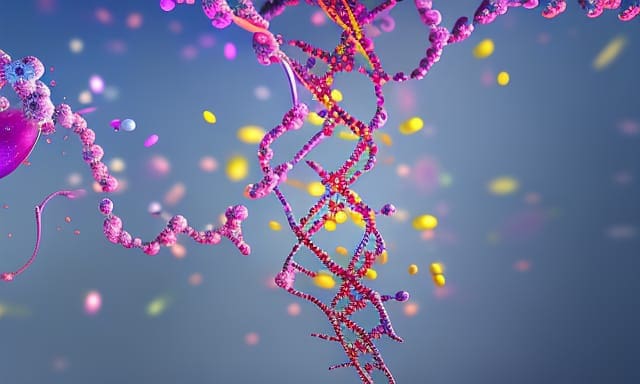Development of Personalized Medicine Based on Genetic Makeup
Have you ever wondered why a certain medication works for some people but not others? Or why certain diseases run in families? The answer lies in our genetics. Recent advancements in genetics have paved the way for personalized medicine based on an individual’s genetic makeup.
In this article, we will explore the history and current state of personalized medicine, its potential benefits and challenges, and how it is revolutionizing medicine.
The History of Personalized Medicine
The concept of personalized medicine dates back to the 19th century when it was discovered that different patients respond differently to the same treatment.
However, it wasn’t until the completion of the Human Genome Project in 2003 that personalized medicine truly became a reality.
This project identified all the genes in the human genome and provided a blueprint for developing targeted therapies based on an individual’s genetic makeup.
How Personalized Medicine Works
Personalized medicine involves using a patient’s genetic information to develop a treatment plan tailored to their specific needs. This approach considers an individual’s unique genetic makeup, environment, and lifestyle to identify the most effective treatment option.
Different types of personalized medicine approaches are currently being used:
- Pharmacogenomics: This uses genetic information to determine how an individual will respond to a particular medication. This can help doctors prescribe the most effective medication and avoid adverse reactions.
- Genetic Testing: This involves analyzing an individual’s DNA to identify genetic variations that may increase the risk of certain diseases. This information can help doctors develop a screening and prevention plan to manage these risks.
- Gene Editing: This involves editing a patient’s DNA to correct genetic mutations that cause diseases. This is still an experimental approach, but it can potentially cure genetic diseases.
Benefits of Personalized Medicine
Personalized medicine offers several potential benefits over traditional medicine:
- Improved Treatment Efficacy: By tailoring treatment to an individual’s genetic makeup, personalized medicine can improve treatment efficacy and reduce the risk of adverse reactions.
- Early Disease Detection: Genetic testing can identify individuals at high risk of developing certain diseases, allowing for early detection and treatment.
- Reduced Healthcare Costs: Personalized medicine can reduce healthcare costs by avoiding ineffective treatments and preventing diseases before they become more costly.
Challenges of Personalized Medicine
While personalized medicine has the potential to revolutionize healthcare, it also faces several challenges:
- Cost: Personalized medicine can be expensive, particularly regarding genetic testing and gene editing.
- Data Privacy: The collection and analysis of genetic data raise concerns about privacy and potential discrimination.
- Limited Access: Not all patients can access personalized medicine, particularly those in rural or low-income areas.
The Future of Personalized Medicine
The field of personalized medicine is rapidly evolving, and several areas of research hold promise for the future:
- Gene Therapy: Gene therapy involves delivering new or modified genes to a patient’s cells to treat or cure diseases. This approach has shown promising results in early clinical trials.
- Artificial Intelligence: AI can analyze vast amounts of genetic data to identify patterns and develop more effective treatments.
- CRISPR-Cas9 Gene Editing: This powerful gene-editing tool has the potential to cure genetic diseases by editing a patient’s DNA.
FAQ
Q: Is personalized medicine only for genetic diseases?
A: No, personalized medicine can be used to treat a wide range of diseases, including cancer, diabetes, and heart disease.
Q: How do I know if personalized medicine is right for me?
A: Talk to your doctor about whether personalized medicine is right for you. Your doctor can determine if you would benefit from genetic testing or a personalized treatment plan based on your medical and family history.
Q: Will personalized medicine replace traditional medicine?
A: No, personalized medicine is not meant to replace traditional medicine. Rather, it is meant to complement it by providing a more targeted and effective treatment approach.
Q: Is genetic testing safe?
A: Genetic testing is generally considered safe but has some risks. There is a small chance of developing an infection from the test or experiencing a reaction to the anesthesia used during the test.
Conclusion
Personalized medicine based on an individual’s genetic makeup is an exciting development in medicine. By tailoring treatment to a patient’s unique needs, personalized medicine can improve treatment efficacy, reduce healthcare costs, and prevent diseases before they become more costly to treat.
While there are challenges to implementing personalized medicine, ongoing research holds promise for the future. With continued advancements in genetics and technology, personalized medicine has the potential to revolutionize healthcare and improve the lives of millions of people around the world.








